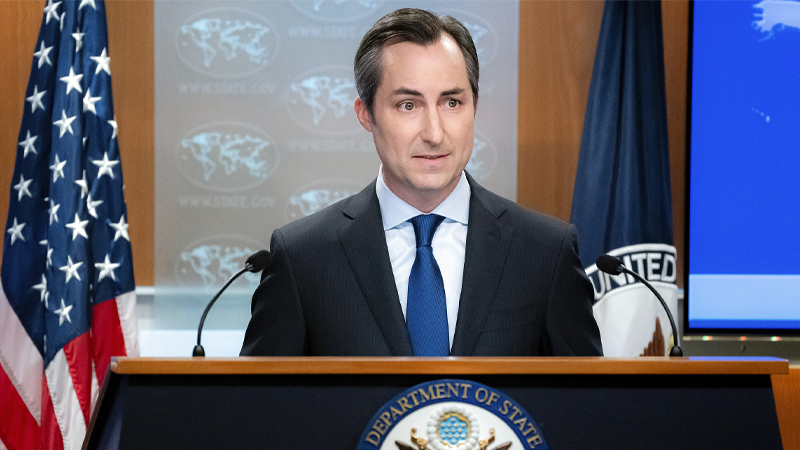The United States announced on Monday that Iran, despite being a longstanding adversary, sought American assistance following a helicopter crash that resulted in the death of Iranian President Ebrahim Raisi. The incident also claimed the lives of Iran’s Foreign Minister Hossein Amir-Abdollahian and seven others. The crash occurred on Sunday due to foggy weather conditions, involving an aging helicopter.
State Department spokesman Matthew Miller confirmed that Iran reached out to the U.S. for help immediately after the crash. “We were asked by the Iranian government for assistance,” Miller told reporters. He stated that the U.S. expressed willingness to assist, as it would with any country facing such a crisis, but logistical challenges ultimately prevented any aid from being provided.
Miller refrained from detailing the nature of the communications between the two countries, which have had no formal diplomatic relations since the 1979 Islamic revolution. However, he mentioned that Iran’s request was for immediate help in locating the crashed helicopter.
The helicopter crash came shortly after the latest round of quiet talks between the U.S. and Iran in Oman, aimed at stabilizing relations following ongoing conflicts between Iran and Israel.
In a statement, the State Department offered “official condolences” for the loss of life. “As Iran selects a new president, we reaffirm our support for the Iranian people and their struggle for human rights and fundamental freedoms,” the statement added.
President Joe Biden’s administration emphasized that the condolences were a standard diplomatic gesture and did not signify support for Raisi. National Security Council spokesman John Kirby highlighted Raisi’s controversial legacy, noting his involvement in mass executions of political prisoners and crackdowns on protests. “This was a man who had a lot of blood on his hands,” Kirby remarked, condemning Raisi’s record of human rights abuses.
Despite these criticisms, Kirby expressed regret over the loss of life, maintaining that the official condolences were appropriate.
Former Iranian Foreign Minister Mohammad Javad Zarif attributed the crash to U.S. sanctions, which he claimed have obstructed the sale of crucial aviation parts. Addressing Zarif’s comment, Miller argued that the Iranian government’s decision to operate a 45-year-old helicopter in adverse weather conditions was ultimately to blame, not external sanctions.
The tragic incident underscores the complex and often contentious relationship between the U.S. and Iran, highlighting moments of human compassion amidst profound political differences.










Leave a Reply